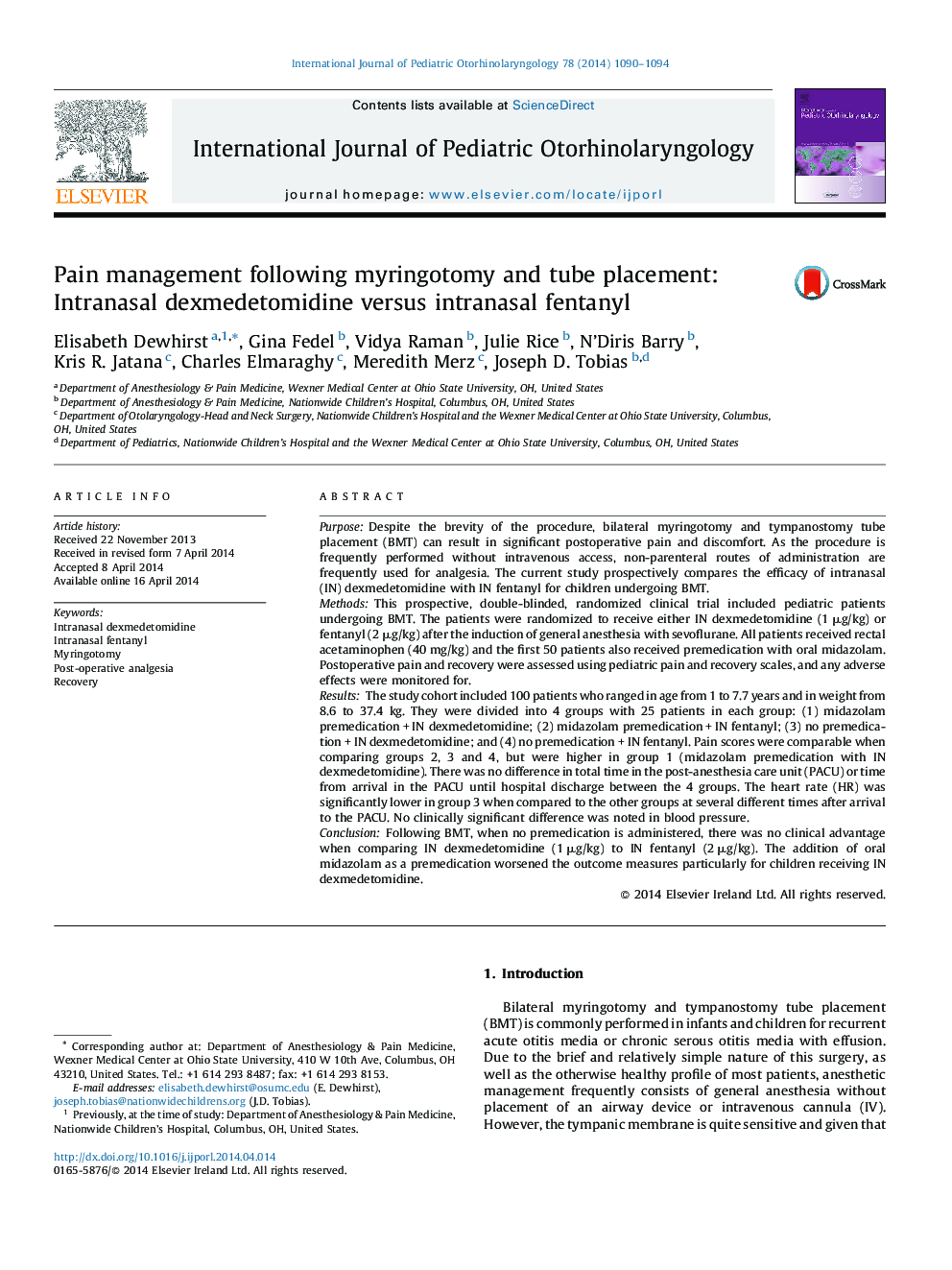| Article ID | Journal | Published Year | Pages | File Type |
|---|---|---|---|---|
| 4112570 | International Journal of Pediatric Otorhinolaryngology | 2014 | 5 Pages |
PurposeDespite the brevity of the procedure, bilateral myringotomy and tympanostomy tube placement (BMT) can result in significant postoperative pain and discomfort. As the procedure is frequently performed without intravenous access, non-parenteral routes of administration are frequently used for analgesia. The current study prospectively compares the efficacy of intranasal (IN) dexmedetomidine with IN fentanyl for children undergoing BMT.MethodsThis prospective, double-blinded, randomized clinical trial included pediatric patients undergoing BMT. The patients were randomized to receive either IN dexmedetomidine (1 μg/kg) or fentanyl (2 μg/kg) after the induction of general anesthesia with sevoflurane. All patients received rectal acetaminophen (40 mg/kg) and the first 50 patients also received premedication with oral midazolam. Postoperative pain and recovery were assessed using pediatric pain and recovery scales, and any adverse effects were monitored for.ResultsThe study cohort included 100 patients who ranged in age from 1 to 7.7 years and in weight from 8.6 to 37.4 kg. They were divided into 4 groups with 25 patients in each group: (1) midazolam premedication + IN dexmedetomidine; (2) midazolam premedication + IN fentanyl; (3) no premedication + IN dexmedetomidine; and (4) no premedication + IN fentanyl. Pain scores were comparable when comparing groups 2, 3 and 4, but were higher in group 1 (midazolam premedication with IN dexmedetomidine). There was no difference in total time in the post-anesthesia care unit (PACU) or time from arrival in the PACU until hospital discharge between the 4 groups. The heart rate (HR) was significantly lower in group 3 when compared to the other groups at several different times after arrival to the PACU. No clinically significant difference was noted in blood pressure.ConclusionFollowing BMT, when no premedication is administered, there was no clinical advantage when comparing IN dexmedetomidine (1 μg/kg) to IN fentanyl (2 μg/kg). The addition of oral midazolam as a premedication worsened the outcome measures particularly for children receiving IN dexmedetomidine.
